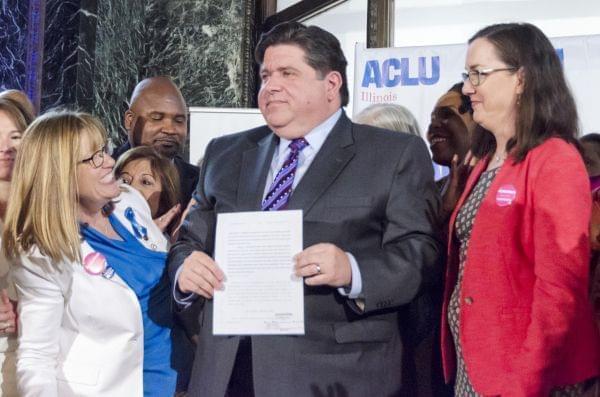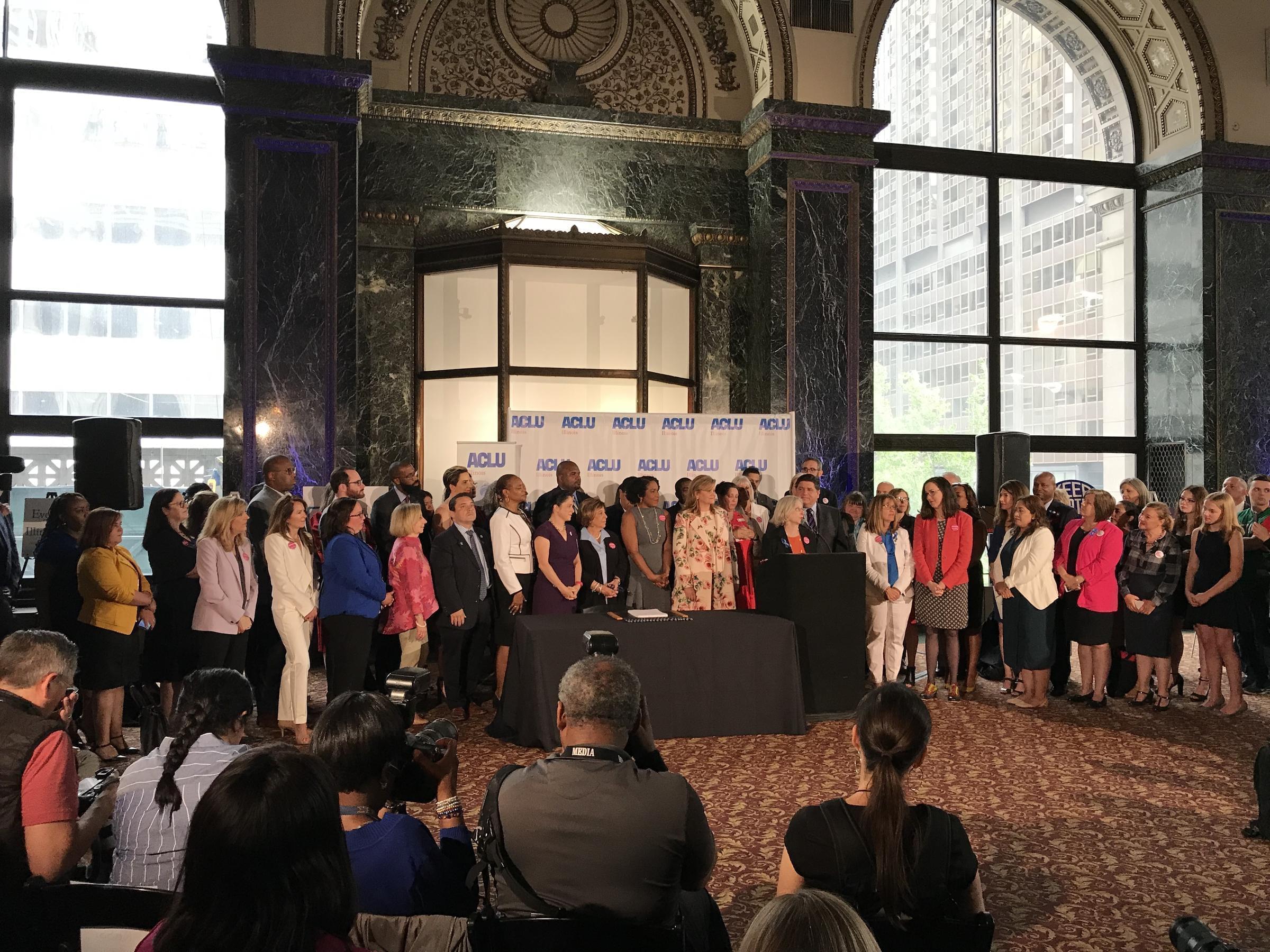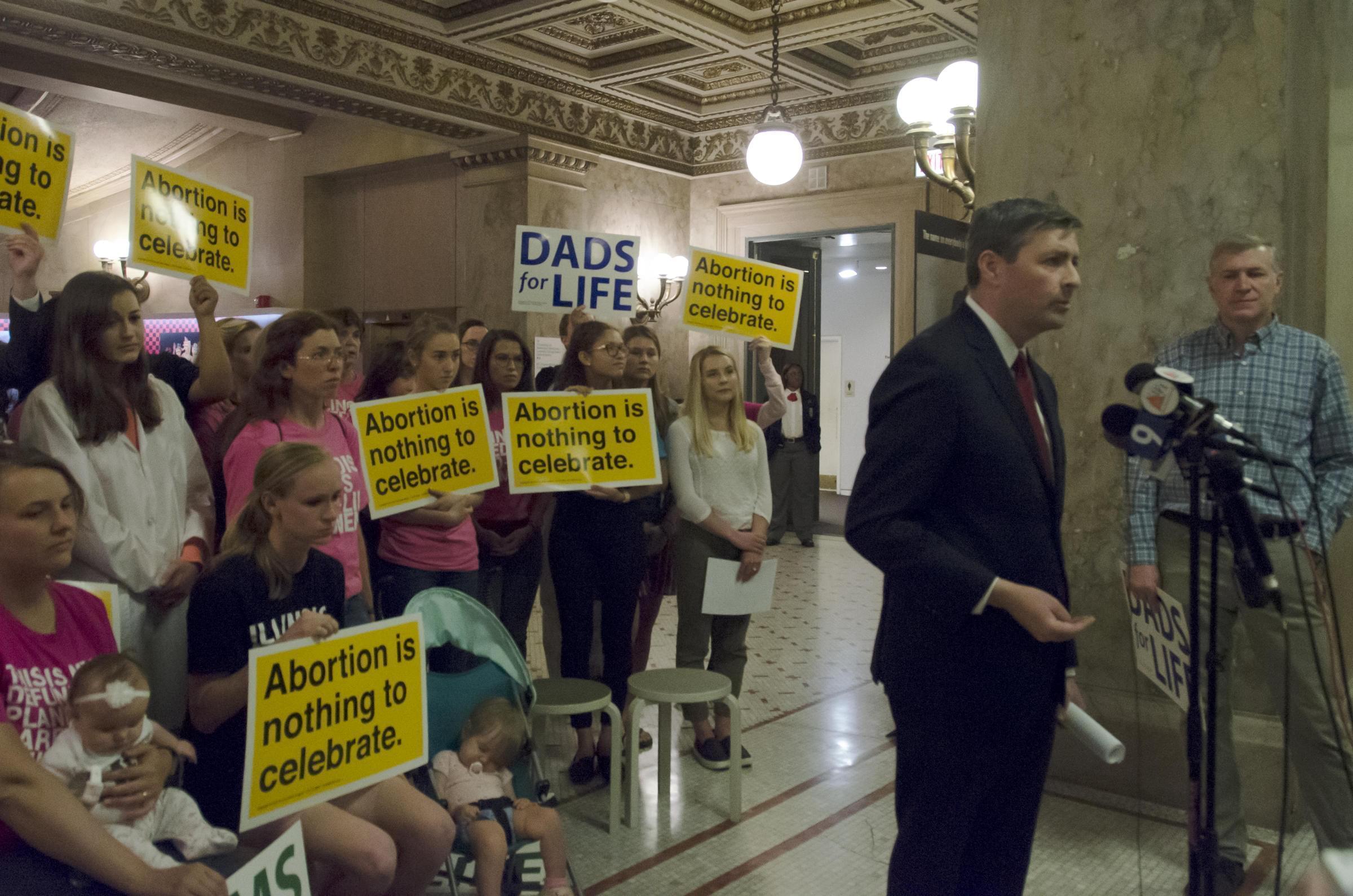Pritzker Signs Bill Making Abortion ‘Fundamental Right’ In Illinois

Gov. J.B. Pritzker displays the newly-signed Reproductive Health Act as supporters look on. From left, Senate sponsor Melinda Bush (D, Grayslake) and House sponsor Rep. Kelly Cassidy (D, Chicago). Sam Dunklau/NPR Illinois
Illinois Governor J.B. Pritzker has signed a controversial bill expanding access to reproductive healthcare, including abortions. The move comes as several other states have all but banned the procedure.
Dozens of advocates surrounded the governor as he signed what they’re calling the “most progressive” abortion law in the nation, cementing it as a "fundamental right" under Illinois law.
Supporters say they were prompted to pass what they called the Reproductive Health Act by a nationwide effort to overturn the U.S. Supreme Court case Roe v. Wade. Neighboring states Indiana and Missouri have joined that effort by restricting the procedure and, in Missouri’s case, refusing to relicense the only clinic where abortions are available.
Governor Pritzker says those who have been cut off elsewhere are welcome in Illinois.
“Let the word go forth today from this place: If you believe in standing up for women’s fundamental rights, Illinois is a beacon of hope in the heart of this nation," he told a crowd gathered for the signing.

State lawmakers and advocates deliver remarks before a crowd gathered to watch Governor J.B. Pritzker sign the Reproductive Health Act.
Older Illinois laws that restrict abortion access have been blocked, and have now been repealed altogether as part of the new law. Supporters of the legislation say they could have been brought back if the U.S. Supreme Court overturns Roe v. Wade.
Jennifer Welch, an executive at Planned Parenthood of Illinois, says Pritzker is keeping another of his campaign promises.
“Today, Illinois sends a very clear message: a woman, not politicians, should make decisions when it comes to her own pregnancy,” she told the crowd.
Away from the joy of supporters gathered to watch the bill signing in a Chicago ballroom, protestors like nurse Emily Kelly stood just one floor below, in a very different kind of mood.
“I’ll be damned if you tell me that, before exiting the miraculous home that is her mother’s womb, that she’s not a living, breathing human person,” Kelly told reporters.
The law took effect immediately. Among other things, it redefines a viable pregnancy as one in which a fetus can survive apart from its mother without life support.
Abortion-rights supporters say they'll next look to repeal Illinois' parental-notification law, which requires a minor to notify her parents when she seeks an abortion. A bill to do away with that provision stalled during the spring legislative session.
State Sen. Melinda Bush, a Democrat from Grayslake, says state lawmakers may try to bring the measure to the floor as soon as the fall veto session.
"It didn't get done this year, [but] I'm sure that [they're] going to want to see those bills called," she said.

Peter Breen of the Thomas Moore Society, flanked by abortion protestors, speaks to the media following the signing of Illinois' Reproductive Health Act.
Meanwhile, the Thomas More Society, a Roman Catholic legal group, says it’ll be challenging the new law in court.
"We have now gone way beyond Roe v. Wade in terms of post-viability abortions," said attorney and former Republican legislator Peter Breen. "It'll now be A-B-C: abortion, bankruptcy and corruption in the state of Illinois."

